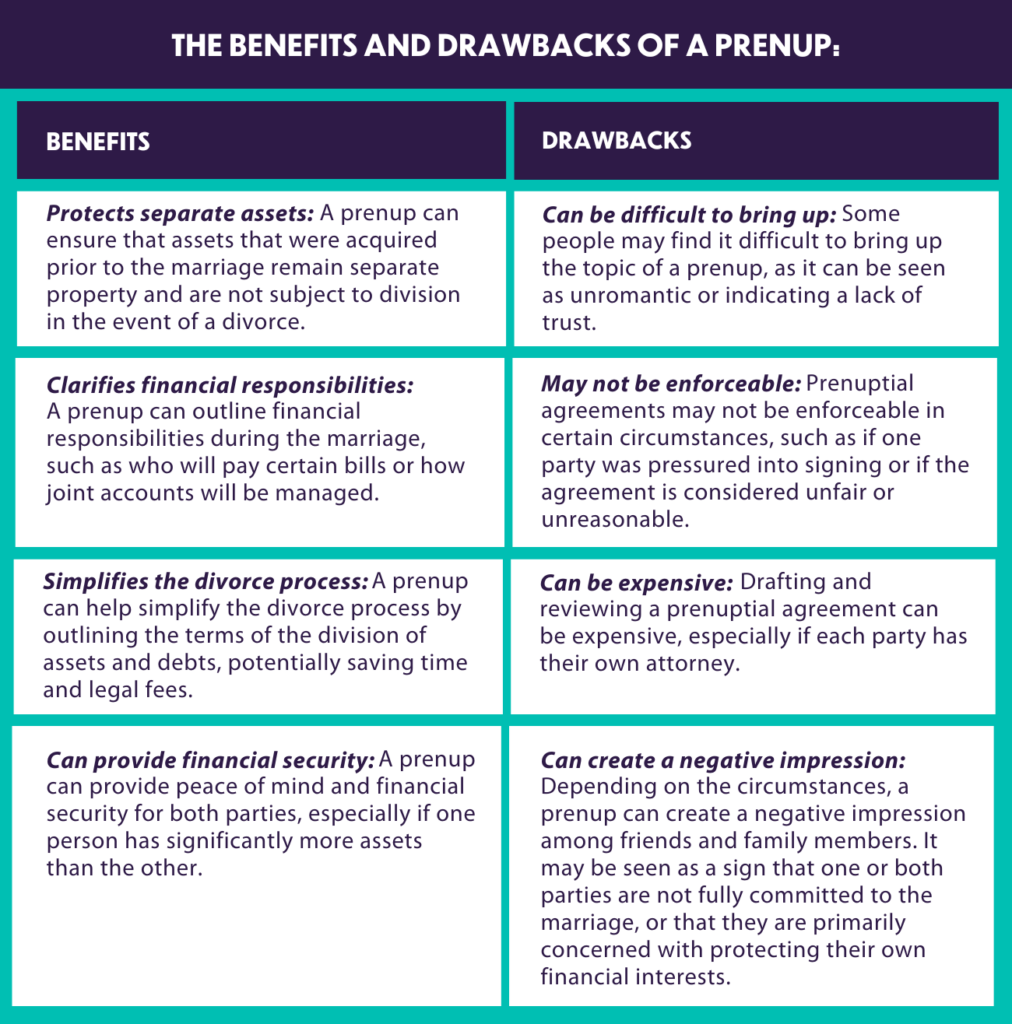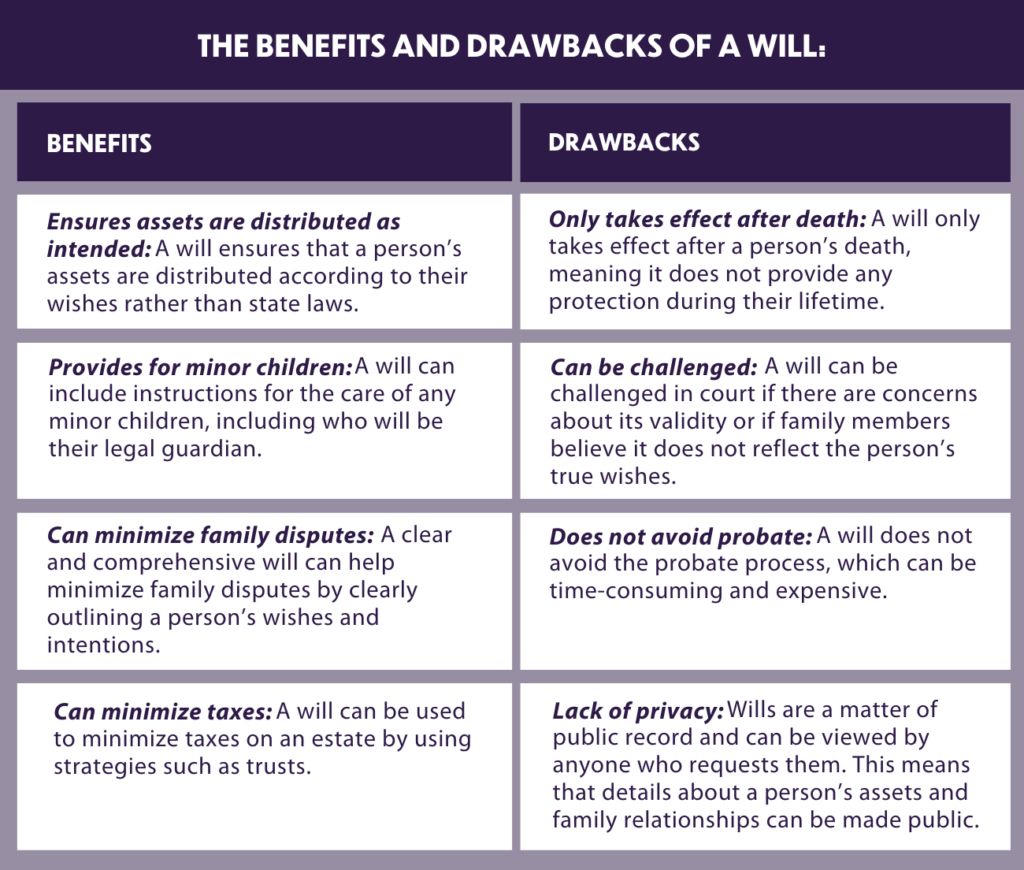Planning for the future is important, both during and after marriage. Many people understand the necessity of creating a will. Fewer people understand the benefits of a prenuptial agreement. If you’re considering remarriage, it’s crucial that you protect yourself financially. Both a prenup and a will are legal documents that address matters related to a person’s assets. Yet they serve different purposes and are used in different circumstances.
A prenup is a legal contract which two people sign before marriage outlining the division of assets and debts in the event of a divorce, as well as any required spousal support or alimony payments. Its function is to protect assets that one or both parties accumulated prior to the marriage and can also include provisions related to financial responsibilities during the marriage.
Conversely, a will is a legal document outlining the distribution of a person’s assets after death. The will can also appoint an executor to manage the distribution of assets and include instructions for caring for any minor children. Updating or changing a will throughout a person’s life to reflect changing circumstances is recommended.
We’ll explore the benefits and drawbacks of both legal documents in this blog and how you can approach the subject of a prenup with your partner.


Discussing a Prenup with Your Partner
The idea of discussing a prenup with your partner can be a difficult topic to broach. It is not uncommon for one or both parties to feel uncomfortable or even defensive when the subject arises. However, it is important to remember that a prenup can provide both parties valuable protection and peace of mind. Here are some tips on how to bring up the topic of a prenup with your partner:
- Start the conversation early: It is best to bring up the topic of a prenup early in the engagement process, ideally before wedding planning begins. This allows for ample time to discuss and negotiate the terms of the agreement without feeling rushed or pressured.
- Be clear and direct: When bringing up the topic, your intentions must be clear and direct. Start the conversation by expressing your desire for a prenup and why you feel it is important. Use clear, concise language, and avoid beating around the bush or making vague statements.
- Be open and honest: Be open and honest about your reasons for wanting a prenup. Explain any concerns you have about finances or the division of assets in the event of a divorce. It is important to approach the conversation honestly and transparently rather than trying to hide your true intentions.
- Listen to your partner’s concerns: It is important to listen to your partner’s concerns and address any questions or objections they may have. Encourage an open and honest dialogue and be willing to compromise on certain aspects of the prenup if necessary.
- Seek professional advice: Seek professional advice from a mediator, lawyer, or financial advisor who specializes in prenuptial agreements. A professional can provide guidance on the legal and financial implications of a prenup and offer suggestions on how to structure the agreement to benefit both parties. Additionally, a prenup may not be enforceable if either party has not been advised to consult legal counsel.
Bringing up the topic of a prenup with your partner may not be easy, but it is important to remember that it can provide valuable protection and peace of mind for both parties. By starting the conversation early, being clear and direct, and listening to your partner’s concerns, you can work together to create a prenup that meets your individual needs and priorities.
While both a prenup and a will can provide valuable protection and peace of mind for individuals and their families, they are very different legal documents. Knowing the difference and considering both in any comprehensive estate planning strategy is important.





